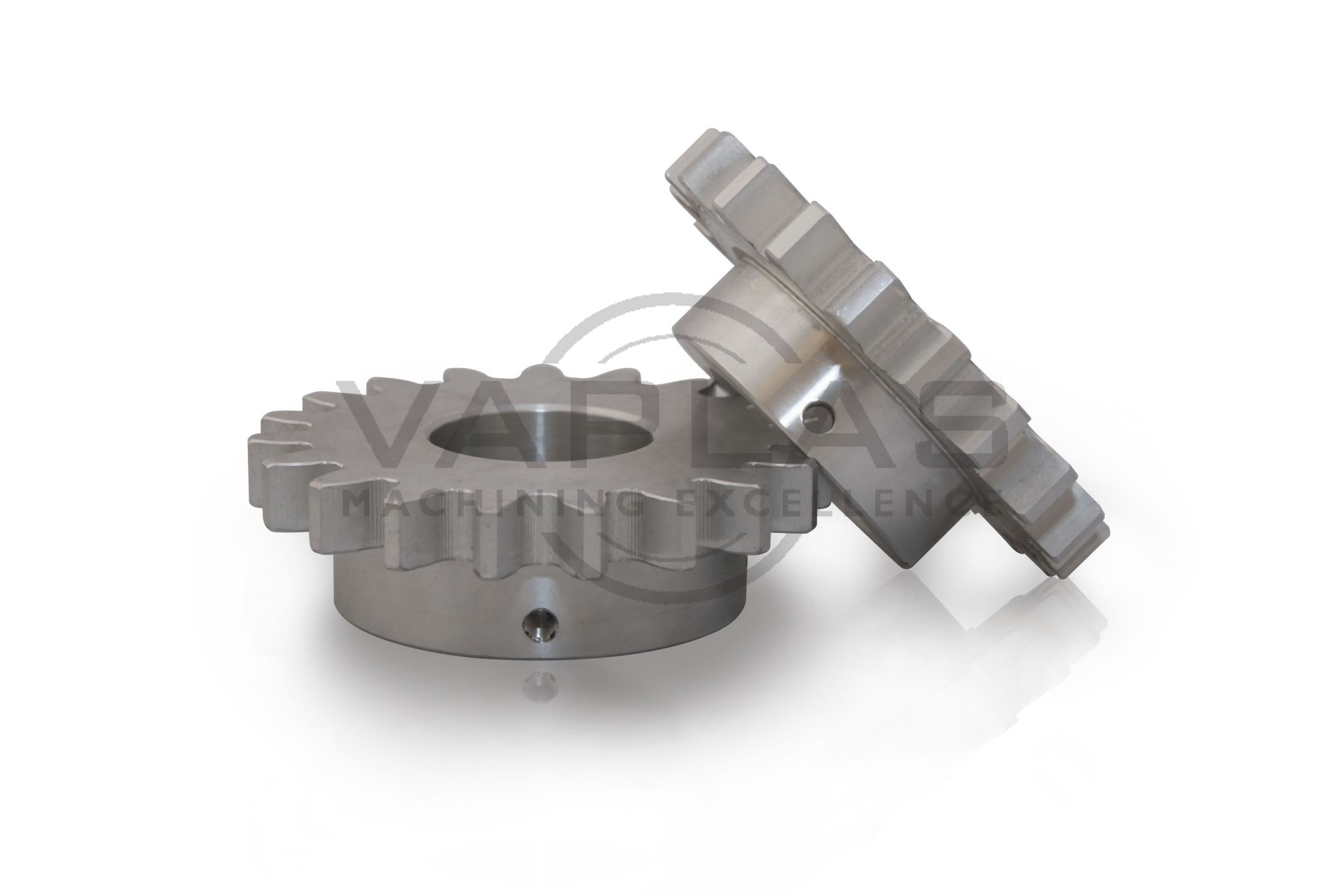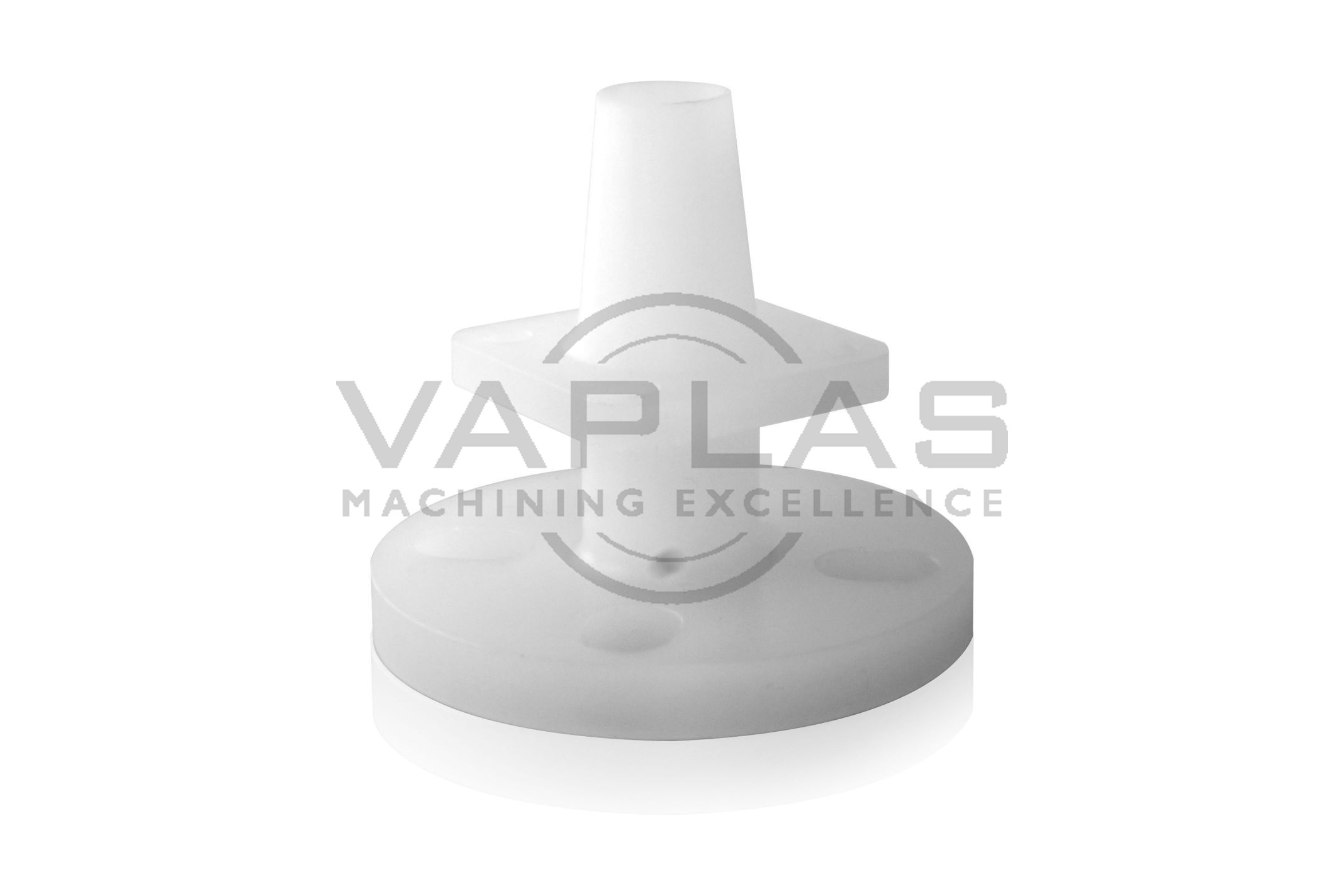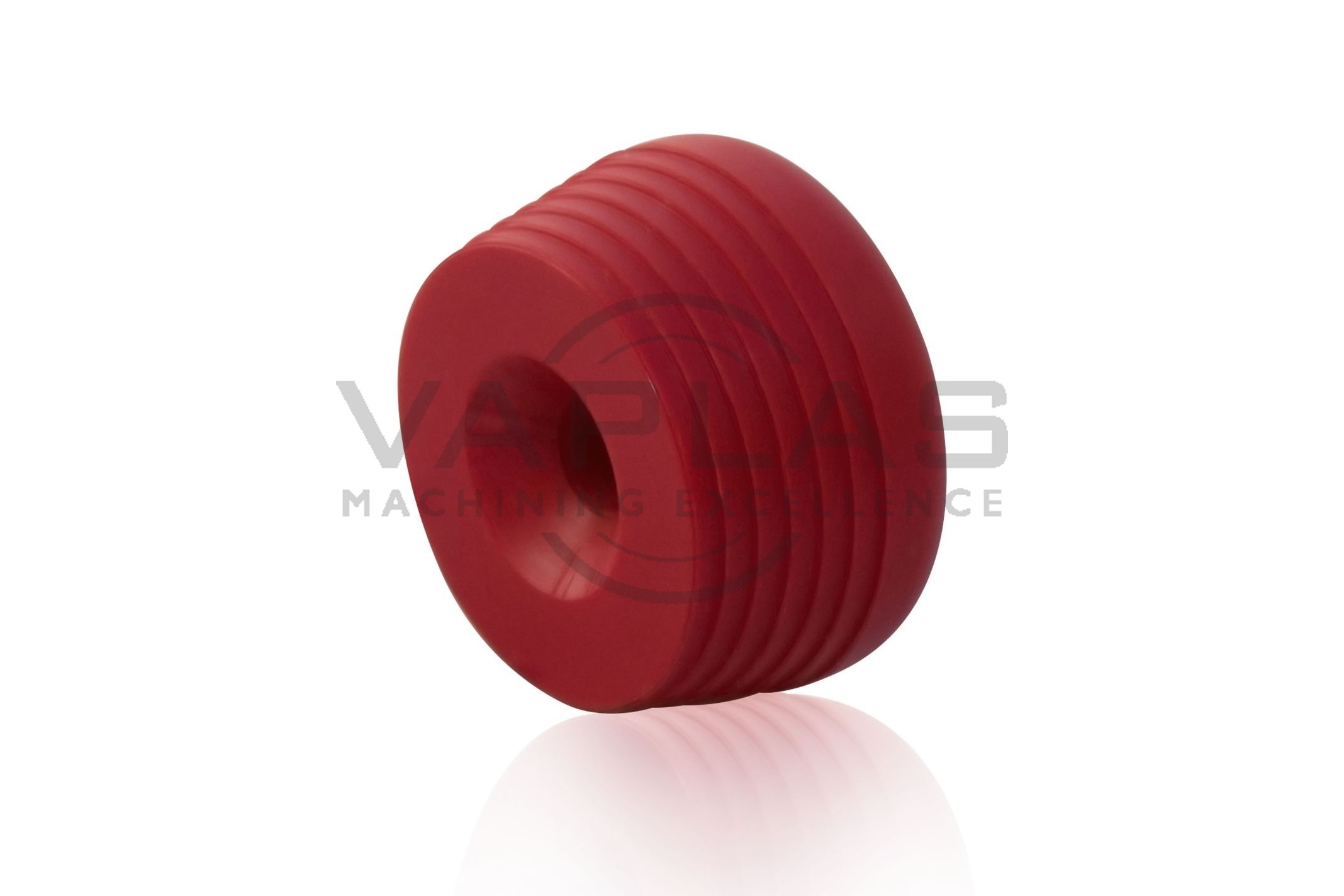Plastic turning
Plastic turning is one of the key stages of the CNC plastic machining process. Turning is a form of machining, used to produce rotational, asymmetric, parts such as holes, grooves and threads.
Parts that are fabricated completely through the process often include those parts where large quantities are not required, making it more of a bespoke process to try things out. This make plastic turning ideal for prototyping several solutions.
The plastic turning process involves cutting away unwanted or excess material, prior to producing the final plastic part. This process requires a turning machine or lathe, and a cutting tool (typically single point that is also secured within the machine).


The cutting tool feeds into the rotating machine and cuts away any material that is not required, in order to shape the final part, usually removed in the form of small chips or pellets to carve out the shape of the part.
Turning is also commonly used as a supplementary method to other process, to “finish it off”. Due to the high tolerances and surface finishes that plastic turning can offer, it is ideal for adding any precision related rotational features in a more conventional shape that may have already been manufactured and are not required for as unique a part shape.
When your project demands quick responses, you would do well to consider diamond turning as part of the plastic turning process. This involves producing low to moderate volumes of accurately plastic optics, in a very short amount of time, therefore being ideal for research projects and prototyping several ideas.
The cutting tool in this case is a diamond shape that has been specially prepared to cut the required geometry of the lens.
Diamond turning is used especially where lightweight solutions are required, and because the process involves a lathe, extremely accurate results are likely. It is also highly repeatable and reusable, and when combined with surface finishes, this process really can generate truly unique designs for parts using plastic turning processes.

Plastic Turning Specialists
Many different plastic polymers such as acrylic, COC, COP and Zeonor, can be diamond turned directly. Some plastics such as polycarbonate are not suitable for this process, as they are too soft.
The choice of material is fundamental to the success of using this method: get it right, and you’ll never look back, but get it wrong and you won’t experience the results you expect.
Contact us today?
We are happy to answer any questions you may have on the different plastic machining processes that we use, or even give you a quote on the work you would like to be carried out.
Ask us about machining aluminium too.
Call now on 01924 220 050 and one of our friendly and knowledgeable team will gladly answer any queries you may have.
Contact Details
Unit 6 Tuscany Court
Express Way
Normanton
West Yorkshire
WF6 2AE
P: 01924 220 050
E: sales@vaplas.com

